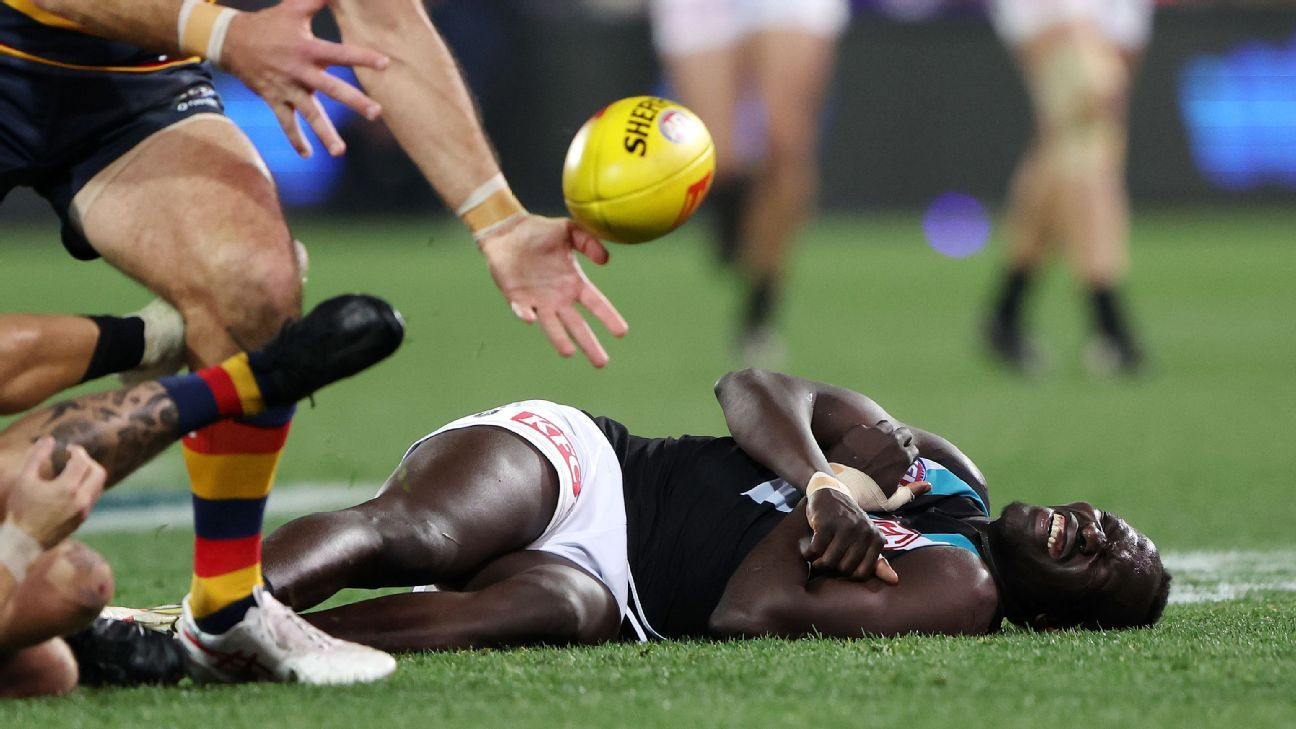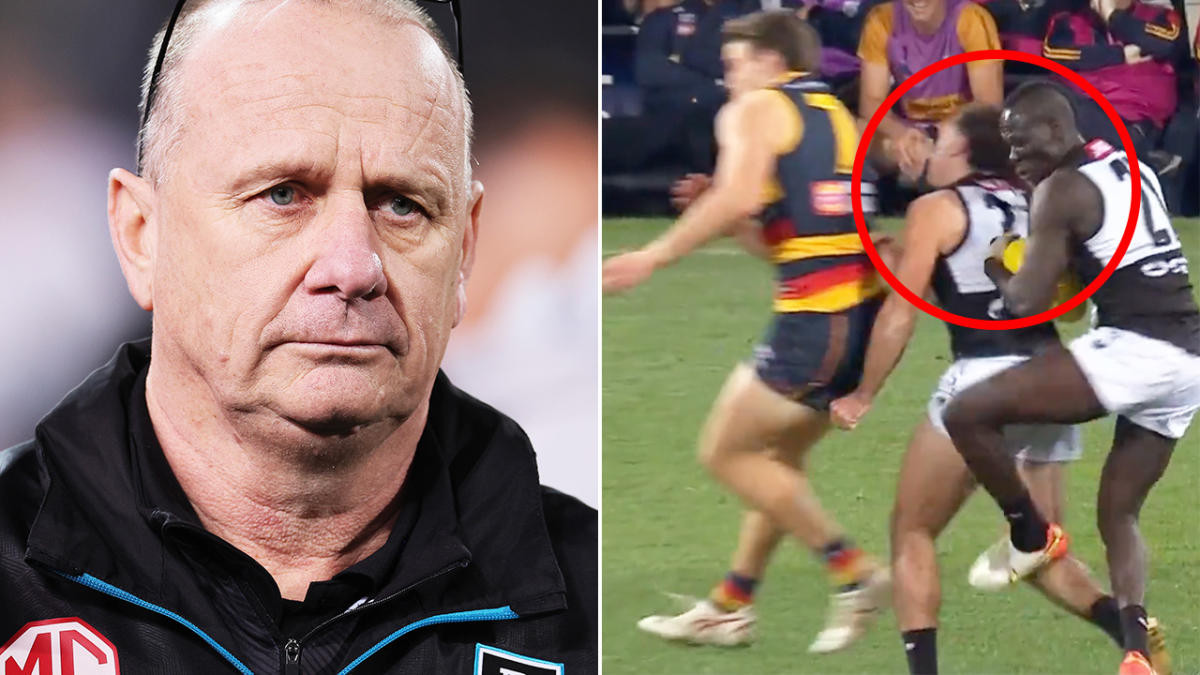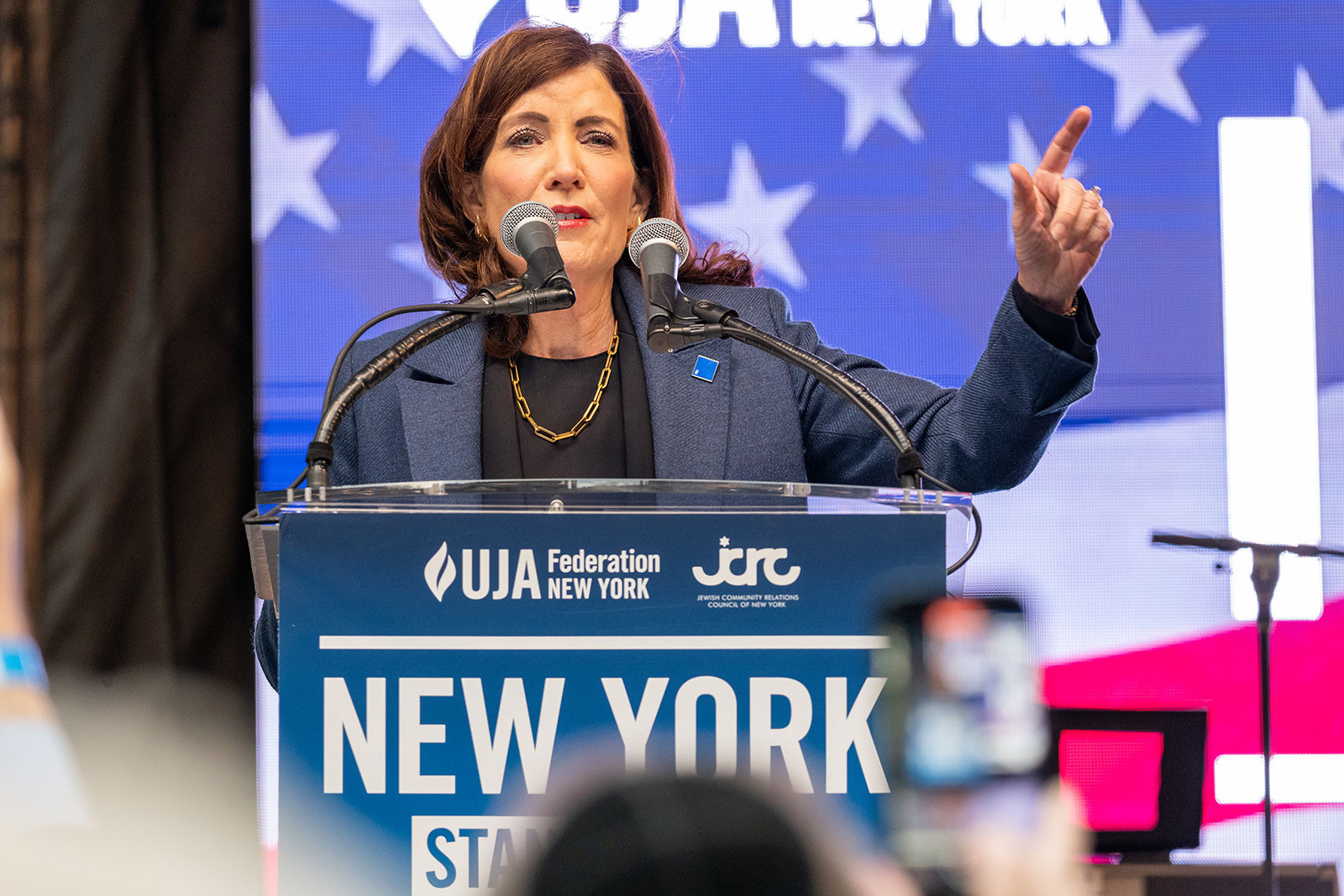KFC has dropped an advertisement for “Friday Night Footy” featuring Port Adelaide AFL star Aliir Aliir after it was slammed online for apparent racial profiling. The fried chicken chain is a shorts sponsor for the South Australian Aussie rules club who prepare to face off against Hawthorn on Friday, along with a handful of other teams.
The commercial lasts just five seconds and was posted on Thursday and has since disappeared in the leadup to the match. In the advertisement, with the jingle singing “Friday night footy”, a KFC advertising campaign slogan also employed in the NRL, Port Adelaide star Aliir Aliir holds a KFC bucket. Aliir is then cornered by fellow club teammates Miles Bergman, Ashleigh Saint and Ebony O’Dea before he points to the bucket, turns and runs away from them as they chase him through a corridor.
The playful skit to highlight how KFC chicken is craved by many on footy night, including the footy players, has since been axed for supposed racial connotations.
Backlash on Social Media
Tatenda Smart Nyaruwe, a Zimbabwean-born TikToker who posts content about being African Australian under the name “Manliketats”, slammed the commercial to his half a million followers. “KFC, KFC, KFC, to say I’m disappointed is an understatement,” the TikToker said. “To say I’m disgusted is just an understatement, do you remember what year we’re in? It’s 2024, these kinds of stuff can’t run, we’re no longer in 2003. Everyone’s gonna have an issue with this, how disgusting, how greedy, for your own fame… Yuck.”
The TikToker said he had KFC the day before he posted the video but would seek a refund. “I’m going to show them this video and say ‘I feel attacked’, ‘I feel targeted,’” he said.
Responding to the TikTok video, users of the video sharing app accused “Manliketats” of a “racist mindset” for turning a KFC ad into a “big deal”. “But Aliir Aliir loves KFC and openly says he loves KFC & Fanta. Only the real fans know,” said a second. “It's Australia this stereotype only applies to Americans,” wrote a third. “Mate Aliir has been a target of racism before ya I'm pretty sure if he didn’t want to do it because it’s racist he wouldn’t have done it,” wrote another.
KFC Responds
SkyNews.com.au contacted KFC for comment. KFC has since responded to the controversy by stating that the advertisement was not intended to be racist and that the company is committed to promoting inclusivity and diversity. The company has also apologized for any offense caused by the advertisement.
The Impact of the Controversy
The KFC advertisement controversy highlights the ongoing issue of racial sensitivity in advertising and media. In recent years, there has been a growing awareness of the need to represent diverse communities authentically and respectfully. The controversy serves as a reminder that advertisers need to be mindful of the potential impact of their campaigns, particularly in a world where social media can quickly amplify messages and criticisms.
The incident has also sparked a debate about the role of humor in advertising, with some arguing that the KFC advertisement was simply a harmless joke while others believe that it perpetuated harmful stereotypes. This debate is likely to continue as companies strive to navigate the increasingly complex landscape of cultural sensitivity and representation.
Moving Forward
This incident, as well as other controversies surrounding advertising, demonstrates the importance of companies being mindful of the social and cultural context of their campaigns. It is crucial for companies to consult with diverse stakeholders, including members of the communities they are targeting, to ensure that their advertisements are inclusive and respectful.
As the world becomes increasingly interconnected, it is vital that companies embrace diversity and inclusion not just as a marketing strategy, but as a core value. This means creating a culture of sensitivity and awareness within organizations, and being proactive in identifying and addressing potential biases in their messaging.
By taking these steps, companies can help to build trust with their audiences and contribute to a more equitable and just society.


















